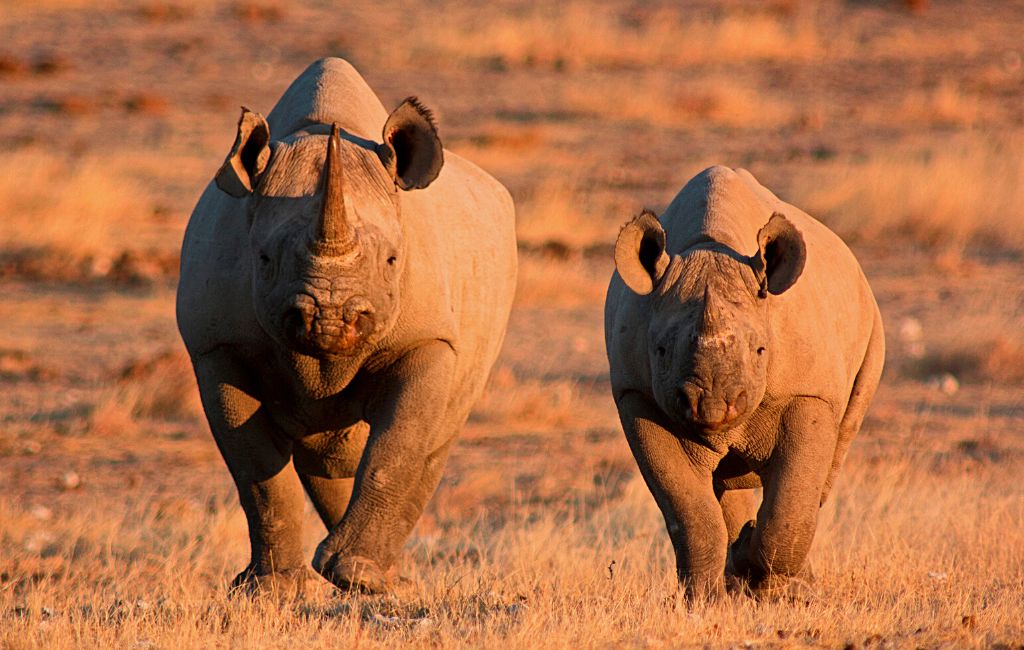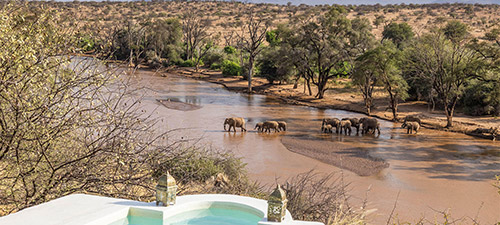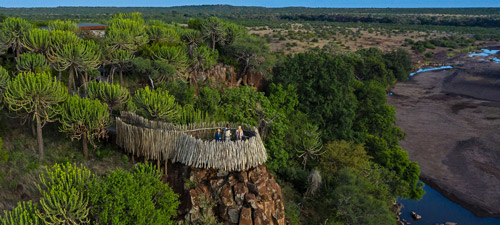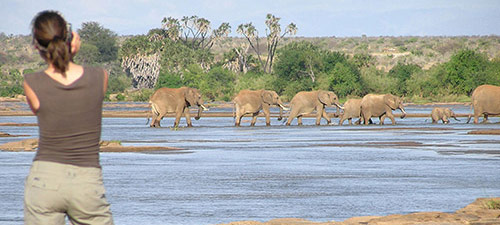
Namibia’s Ministry of Environment, Forestry and Tourism (MEFT) has confirmed that 87 rhinos were poached in the country in 2022 – almost double the number (45) poached in 2021. The 2022 tally included the poaching of 61 black rhinos and 26 white rhinos.
The news comes as MEFT announced the 2022 poaching statistics for elephants and rhino in a statement released on 30 January, 2023.
The Ministry reported that Etosha National Park is being targeted for poaching, with 46 rhinos poached in the park in 2022 alone. The total tally also includes 15 rhinos poached on rhino custodianship farms, and 25 on white rhino private farms.
“We note with serious concern that our flagship park, Etosha National Park, is a poaching hotspot,” MEFT said in the statement. “The Ministry and its partners in wildlife protection and law enforcement will step up efforts against wildlife crime in Etosha National Park, particularly to curb rhino poaching.”
One rhino poaching incident has been recorded in 2023 so far. That brings the total tally of rhinos poached from 2017 to date to 376.
In a positive turn, however, elephant poaching appears to be on the decrease. MEFT reports that only four elephants were poached in 2022. Elephant poaching figures have declined in Namibia over the past years, from 101 in 2015 to 50 in 2017, 27 in 2018, 13 in 2019, 12 in 2020, and 10 in 2021. The four elephants targeted in 2022 were poached in the Zambezi Region (two), Kavango West Region (one) and Kunene Region (one).

“It is our hope that these figures will continue to descend until we reach the zero-poaching target,” said MEFT. “For this year, no elephant has been poached.”
Elephant numbers are increasing and their range is expanding in Namibia, which is cause for celebration and concern. The key concern is related to human-elephant conflict, especially in areas where elephants have not occurred for decades. As a result, the country took the decision last year to auction 170 elephants from human-elephant conflict hotspots, with many of these elephants controversially being exported to safari parks in the United Arab Emirates (UAE).
MEFT noted in its recent statement that it had put improved interventions in place to fight wildlife crime, praising the work of anti-poaching units operating across the country. It called on members of the public to help curb rhino poaching by reporting suspected perpetrators to the authorities. “We must as a nation stand against the illegal plundering of our natural resources by rejecting and condemning wildlife crimes in our beautiful country,” it said.
To comment on this story: Login (or sign up) to our app here - it's a troll-free safe place 🙂.![]()








